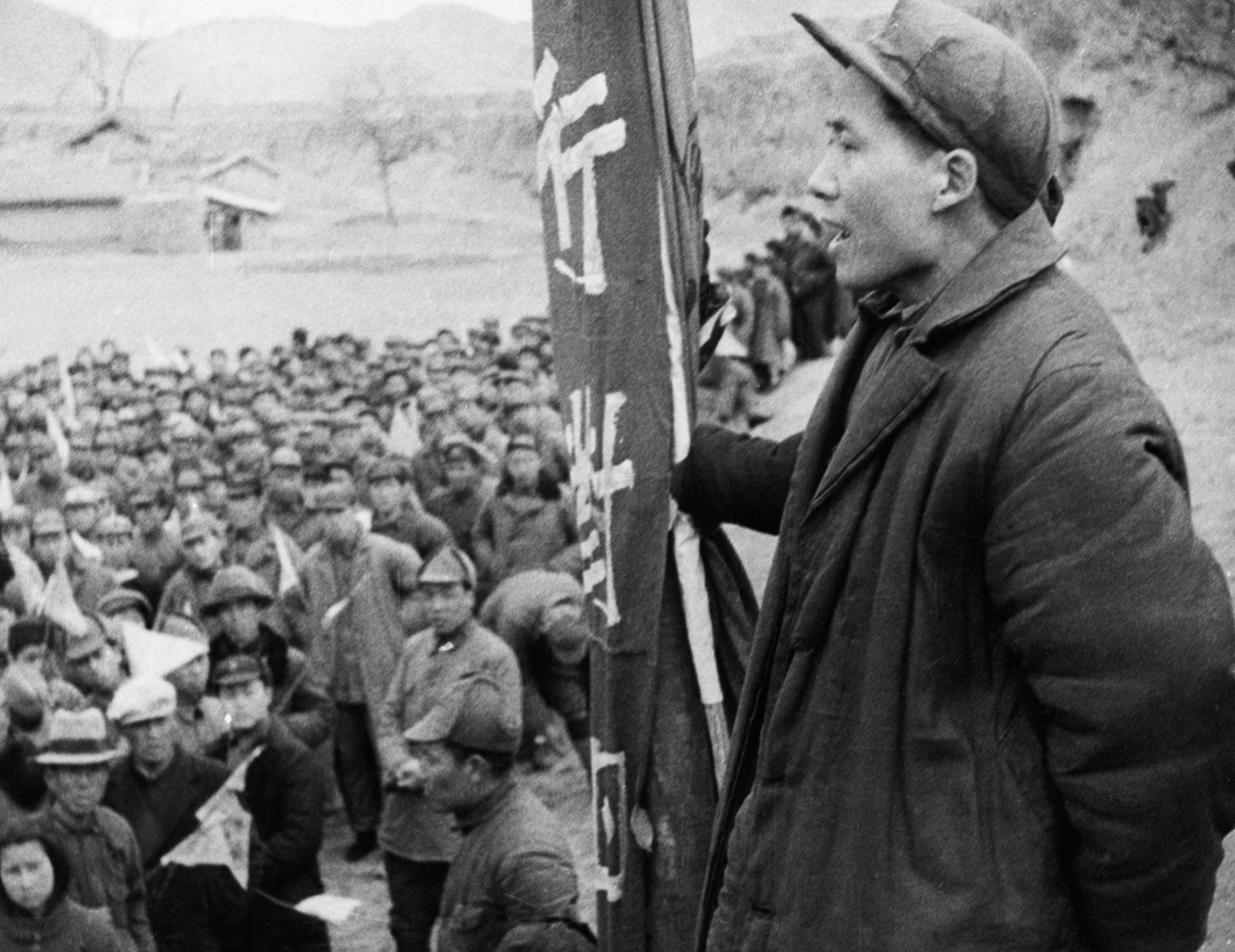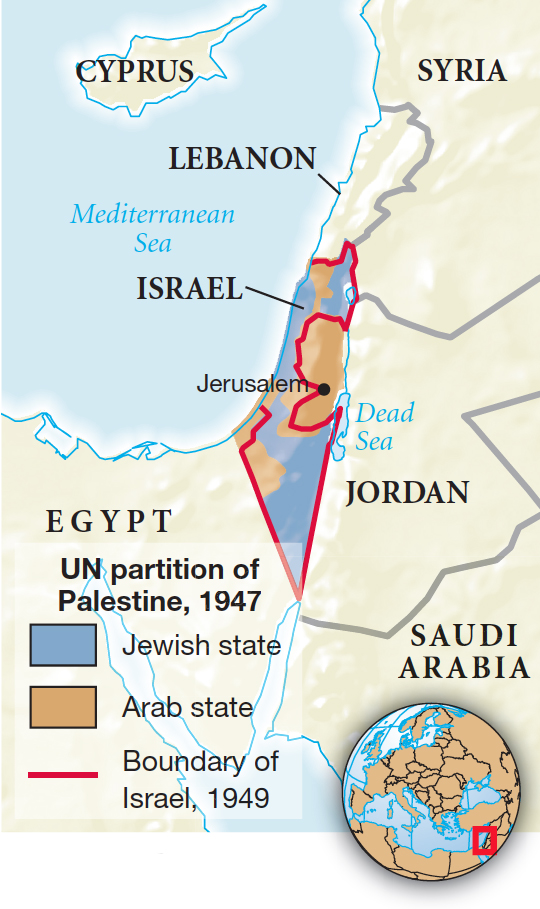Superpower Rivalry around the Globe.
Printed Page 721 Chapter Chronology

Superpower Rivalry around the Globe. Efforts to implement containment moved beyond Europe. In Africa, Asia, and the Middle East, World War II accelerated a tide of national liberation movements against war-weakened imperial powers. By 1960, forty countries had won their independence. These nations, along with Latin America, came to be referred to collectively as the third world.
Like Woodrow Wilson during World War I, Roosevelt and Truman promoted the ideal of self-determination. The United States granted independence to the Philippines in 1946 and applauded the British withdrawal from India. U.S. policymakers encouraged democracy and capitalism in emerging nations and sought to preserve opportunities for American trade, while U.S. corporations coveted the vast oil reserves in the Middle East. Yet leaders of many liberation movements, impressed with Russia's rapid economic growth, adopted socialist or Communist ideas. Although few of these movements had formal ties with the Soviet Union, American leaders saw them as a threatening extension of Soviet power. Seeking to hold communism at bay by fostering economic development and political stability, in 1949 the Truman administration began a small program of aid to developing nations. Meanwhile, civil war raged in China, where the Communists, led by Mao Zedong (Mao Tse-tung), fought the official Nationalist government under Jiang Jieshi (Chiang Kai-shek). While the Communists gained popular support for their land reforms and valiant stand against the Japanese, Jiang's corrupt, incompetent government alienated much of the population. Failing to promote a settlement between Jiang and Mao, the United States provided $3 billion in aid to the Nationalists. Yet, recognizing the ineptness of Jiang's government, Truman refused to divert further resources from Europe to China.

In October 1949, Mao established the People's Republic of China (PRC), and the Nationalists fled to the island of Taiwan. Fearing a U.S.-supported invasion to recapture China for the Nationalists, Mao signed a mutual defense treaty with the Soviet Union. The United States refused to recognize the PRC, blocked its admission to the United Nations, and supported the Nationalist government in Taiwan. Only a massive U.S. military commitment could have stopped the Chinese Communists, yet some Republicans charged that Truman and "pro-Communists in the State Department" had "lost" China. With China in turmoil, U.S. policy shifted to helping Japan rapidly reindustrialize. In a short time, the Japanese economy was flourishing, and the official military occupation ended when the two nations signed a peace treaty and a mutual security pact in September 1951. Like West Germany, Japan now sat squarely within the American orbit, ready to serve as an economic hub in a vital area.
The one place where Cold War considerations did not control American policy was Palestine. In 1943, then-senator Harry Truman spoke passionately about Nazi Germany's annihilation of the Jews, asserting, "This is not a Jewish problem, it is an American problem — and we must ...face it squarely and honorably." As president, he made good on his words. Jews had been migrating to Palestine, their biblical homeland, since the nineteenth century, resulting in tension and hostilities with the Palestinian Arabs. After World War II, as hundreds of thousands of European Jews sought refuge and a national homeland in Palestine, fighting and terrorism escalated on both sides.
Truman's foreign policy experts sought American-Arab friendship to contain Soviet influence in the Middle East and to secure access to Arabian oil. Uncharacteristically defying his advisers, the president responded instead to pleas from Jewish organizations, his moral commitment to Holocaust survivors, and his interest in the American Jewish vote for the 1948 election. When Jews in Palestine declared the state of Israel in May 1948, Truman quickly recognized the new country and made its defense the cornerstone of U.S. policy in the Middle East.